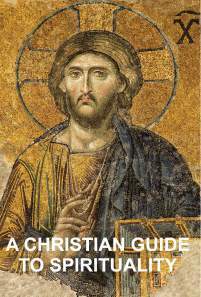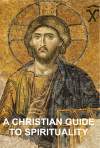Stephen W. Hiemstra's Blog, page 284
September 8, 2014
Who is God?

Art by Stephen W. Hiemstra
The heavens declare the glory of God, and the sky above proclaims his handiwork. Day to day pours out speech, and night to night reveals knowledge. There is no speech, nor are there words, whose voice is not heard. ( Ps 19:1–3)
By Stephen W. Hiemstra
When I was young, I wanted to be a pilot. I learned to read a map, work with a compass, and navigate by the stars in pursuit of my goal. The idea that God would use a star to guide the wise men to the baby Jesus fascinated me. Equally fascinating is how God reveals himself to us in the creation story. The Bible starts telling us that: “In the beginning, God created the heavens and the earth.” (Gen 1:1) What do these simple words tell us about God?
The phrase—in the beginning—tells us that God is eternal. If creation has a beginning, then it must also have an end. This implies that creation is not eternal, but the God who created it must be. If our eternal God created time, both the beginning and the end, then everything God created belongs to God. Just as the potter is master over the pottery he makes, God is sovereign over creation (Jer 18:4–8). God did not win creation in an arm-wrestling match or buy it online or find it on the street, he created it—God is a worker.
God’s sovereignty is reinforced in the second half of the sentence when it says: God created the heavens and the earth. Here heaven and earth form a poetic construction called a merism. A merism is a literary device that can be compared to defining a line segment by referring to its end points. The expression—heaven and earth—therefore means that God created everything. Because he created everything, he is sovereign over creation; and sovereignty implies ownership.
So, from the first sentence in the Bible we know that God is eternal and he is sovereign. We also know that he is holy. Why? Are heaven and earth equal? No. Heaven is God’s residence. From the story of Moses’ encounter with God in the burning bush (Exod 3:5), we learn that any place where God is becomes holy in the sense of being set apart or sacred. Because God resides in heaven, it must be holy. Earth is not. Still, God created both and is sovereign over both (Rev 4:11).
Genesis paints two other important pictures of God.
The first picture arises in Genesis 1:2; here the breath, or spirit of God, is pictured like a bird hovering over the waters. Hovering requires time and effort suggesting ongoing participation in and care for creation. The Bible speaks exhaustively about God providing for us—God’s provision. Breath translates as Holy Spirit in the original languages of the Bible—both Hebrew (Old Testament) and Greek (New Testament).
The second picture appears in Genesis 2, which retells the story of creation in more personal terms. As a potter works with clay (Isa 64:8), God forms Adam and puts him in a garden. Then, he talks to Adam and directs him to give the animals names. And when Adam gets lonely, God creates Eve from Adam’s rib or side—a place close to his heart.
Genesis 1 and 2, accordingly, paint three pictures of God: 1. God as a mighty creator; 2. God who meticulously attends to his creation; and 3. God who walks with us like a friend. While the Trinity is not fully articulated in scripture until the New Testament, God’s self-disclosure as the Trinity appears from the beginning (Chan 1998, 41).
The Lord’s Prayer casts a new perspective on Genesis 1:1 when Jesus says: “Your kingdom come, your will be done, on earth as it is in heaven.” (Matt 6:10) Because we are created in God’s image, we want our home to modeled after God’s.
Hugh Whelchel (2012,7).
Heaven and earth can also be interpreted as proxies for God’s attributes of transcendence and immanence (Jer 23:23–24; Dyck 2014, 99).
God’s eternal nature is also defined with a merism: “I am the Alpha and the Omega,” says the Lord God, “who is and who was and who is to come, the Almighty.” (Rev 1:8)
This bird (avian) image appears again in the baptismal accounts of Jesus. For example, in Matthew 3:16 we read: “And when Jesus was baptized, immediately he went up from the water, and behold, the heavens were opened to him, and he saw the Spirit of God descending like a dove and coming to rest on him.”
Breath itself is necessary for life—part of God’s provision.


¿Quien es Dios?

Art by Stephen W. Hiemstra
Los cielos proclaman la gloria de Dios, y la expansión anuncia la obra de sus manos. Un día transmite el mensaje al otro día, y una noche a la otra noche revela sabiduría. No hay mensaje, no hay palabras; no se oye su voz. (Salmo 19:1-3 LBA)
Por Stephen W. Hiemstra
Como una persona joven, quiere ser piloto. Aprendia que leer un mapa, trabajar con un compass, y siguen las estrellas por direcciones para perseguir mi sueno. La idea que Díos usaría una Estrella a guiar por magos al niño Jesús me encanta. Igualmente fascinante es cómo Dios se nos revela en la cuenta de la creación. La Biblia empezo diciendonos que: “En el principio creó Dios los cielos y la tierra.” (Génesis1:1 LBA) ¿Qué nos dicen estas sencillas palabras acerca de Dios?
La frase—en el principio—nos dice que Díos es eterna. Si la creación tiene un principio, entonces también debe tener un final. Se implicita es que creación no es eternal, sino que el Dios quien la creada necesita ser. Si nuestro Dios eternal creó el tiempo, tanto al principio y como al final, entonces todo lo que Dios creó es suya. Asi como el alfarero es senior sobre la vasija que hace, Dios es soberano sobre creacíon (Jeremias 18:4–8). Dios no ganó creacíon en un partido pulseada o comprar en línea o encontrar en la calle, la creó—Dios es un trabajador.
El soberano de Dios esta reforzada en la secunda parte de esta frase cuando la dice: creó Dios los cielos y la tierra. Allí las dos palabras, los cielos y la tierra, forma una estructura poetica llamado un merismo. Esta estructura hecho como a una línea definida por sus puntos extremos. Entonces, la expression, los cielos y la tierra, significa que Dios creó todo. Porque él creó todo, Díos es soberano creacíon, y la soberanía implica la propiedad.
Entonces, de la primera frase en la Biblia sabemos que Díos es eternal y soberano. Sabemos tambien que Díos es santo. ¿Porque? ¿Son el cielo y la tierra igual? No. El cielo es la residencia de Díos. De la historia de Moisés y su encuentra con Díos acerca de la zarza ardiente (Exodo 3:5), aprendimos que cualquiera lugar donde Dios es estaria santo en la sensacíon de apartada (dedicada) o sagrada (santificada). Porque Dios vive en el cielo, debe ser santo. La tierra no esta. Aún así, Díos los creó y es soberano sobre ambos (Apocalisis 4:11).
Génesis da dos otras imaginas importante de Díos.
La imágina primera viene en Génesis 1:2; aquí, el espiritu de Dios (o el aliento) es representaba como un aves que se movia sobre las aguas. Revoloteando require tiempo y esfuerzo que suguiere participacíon activa y cuido para la creacion. La Biblia habla extensivamente sobre Dios y su provision para nosotros—la provision de Dios. El aliento traduce como Espiritu Santo en los lenguas original de la Biblia—ambos Hebreos (Antiguo Testamento) y Griego (Nueva Testamento).
La imágina segunda aparece en Génesis 2, donde dijo la historía de creación en términos más personales. Como el alfarero trabaja con barro (Isaias 64:8), Díos forma Adán y lo puso en un jardin. Luego, él habla con Adán y lo dirige a dar nombres a los animales. Y cuando Adán era solo, Díos crea a Eva de una costilla o del lado de Adán—un lugar cerca de su corazon.
En consecuencia, Génesis 1 y 2 da tres imágines de Díos: 1. Díos como un creador poderosa; 2. Díos a quien cuida meticulosamente de su creación; y 3. Dios a quien camina con nosotros como un buen amigo. Mientras la Trinidad no esta articulado en la escritura hasta el Testamento Nuevo, la autorrevelación de Dios como la Trinidad aparece desde hace el principio (Chan 1998, 41).
La Oración del Señor da un perspective nuevo sobre Genesis 1:1 cuando Jesus dice: “Venga tu reino. Hágase tu voluntad, así en la tierra como en el cielo.” (Mateo 6:10 LBA) Porque estamos creado en la imagina de Dios, queramos lo mismo que nuestro hogar a estar como la casa de Dios en el cielo.
Hugh Whelchel (2012, 7).
El cielo y la tierra pueda tambien ser interpretado como indicadores de los atributos de Dios tales como la trascendencia y la inmanencia (Jeremias 23:23–24; Dyck 2014, 99).
La naturaleza de Díos eternal es tambien descrito con un merismo: “Yo soy el Alfa y la Omega” – dice el Señor Dios – “el que es y que era y que ha de venir, el Todopoderoso.” (Apocalisis 1:8 LBA)
Esta imagen de díos como un aves (aviar) aparece también en las cuentas del bautismo de Jesús. Por ejempo, en Mateo 3:16 leemos: “Después de ser bautizado, Jesús salió del agua inmediatamente; y he aquí, los cielos se abrieron, y él vio al Espíritu de Dios que descendía como una paloma y venía sobre Él.” (Mateo 3:16 LBA)
El aliento mismo es necesario para la vida—una parte de la provision de Díos.
REFERENCIAS
Chan, Simon. 1998. Spiritual Theology: A Systemic Study of the Christian Life. Downers Grove, IL: IVP Academic.
Dyck, Drew Nathan. 2014. Yawning at Tigers: You Can’t Tame God, So Stop Trying. Nashville: Thomas Nelson.
Whelchel, Hugh. 2012. How Then Should We Work? Rediscovering the Biblical Doctrine of Work. Bloomington, IN: WestBow Press.

September 7, 2014
Prayer Day 43: A Christian Guide to Spirituality by Stephen W. Hiemstra

Available on Amazon.com
Almighty Father. We praise you for the gift of life. Walk with us on the beach in the morning. Run with us through peaceful cornfields in the night. Swim with us as we exercise bodies and minds. In the power of your Holy Spirit, transform us into your people. In Jesus’ precious name, Amen.

September 5, 2014
2 Corinthians 10: Spiritual Warfare

Art by Stephen W. Hiemstra
For the weapons of our warfare are not of the flesh but have divine power to destroy strongholds. We destroy arguments and every lofty opinion raised against the knowledge of God, and take every thought captive to obey Christ, being ready to punish every disobedience, when your obedience is complete. (2 Corinthians 10:4-6 ESV)
By Stephen W. Hiemstra
As a freshman in college, I took judo. Judo appealed to me for a lot of reasons, but one the most important was the judo philosophy of using your opponent’s actions and weaknesses against them. Instead of resisting an opponent lunging at you, you step aside, tug their collar, and trip them with a knee or ankle block. Or, freak your opponent out with an uncommon technique—works even against a black belt! In my case, the black belt recovered his composure and I was quickly looking up from the mat on my back!
In the case of spiritual warfare, Satan is the ultimate black belt opponent—he knows all our weaknesses and has mastered all the moves. In verse 17, Paul wisely cites the Prophet Jeremiah who writes
Thus says the LORD: “Let not the wise man boast in his wisdom, let not the mighty man boast in his might, let not the rich man boast in his riches, but let him who boasts boast in this, that he understands and knows me, that I am the LORD who practices steadfast love, justice, and righteousness in the earth. For in these things I delight, declares the LORD.” (Jeremiah 9:23-24)
In the spiritual domain, the strongholds we face are false arguments and lofty opinions that arise, not from Christ, but promote disobedience (vv 4-6) and serve, not to build up, but to destroy (v 8). Because our opponent is stronger and craftier than us, we boast only of God (v 17) and limit ourselves to the ministry with which God has entrusted us (v 13). To speak about other matters is foolish (v 16) for it is the Lord who commends, not us (v 18).
Interestingly, Paul writes not about Satan and a fight with demons, but simply about his human opponents in the church at Corinth. Yet, we instinctively recognize that the physical realm and the spiritual realm share much in common.
The attack on Paul in Corinth starts with ridicule of his meekness and gentleness—attributes of Christ himself (v 1). Yet, what do we hear today—don’t be a doormat like those Christians! In Paul’s case, his critics say: His letters are weighty and strong, but his bodily presence is weak, and his speech of no account (v 10). Still, Paul’s defense is very plain—I simply practice what I preach (v 11). He further points out that his critics simply work to make themselves look good by comparing themselves with others (v 12).
Do you think that Paul ever practiced judo?
A wise man scales the city of the mighty and brings down the stronghold in which they trust. (Proverbs 21:22)

2 Corintios 10: Guerra Espiritual

Art by Stephen W. Hiemstra
Las armas con que luchamos no son del mundo, sino que tienen el poder divino para derribar fortalezas. Destruimos argumentos y toda altivez que se levanta contra el conocimiento de Dios, y llevamos cautivo todo pensamiento para que se someta a Cristo. Y estamos dispuestos a castigar cualquier acto de desobediencia una vez que yo pueda contar con la completa obediencia de ustedes. (2Corintios 10:4-6 NVI)
Por Stephen W. Hiemstra
Como estudiante de primer año en la universidad, tomé judo. Judo me atrajo para un montón de razones, pero una de las más importantes fue la filosofía del judo de la utilización de las acciones de su oponente y los puntos débiles en contra de ellos. En lugar de resistir a un oponente arremetiendo contra usted, usted camina a un lado, tirar de su cuello, y tropiezas con un bloque de la rodilla o el tobillo. O, enloquecer a tu oponente con una técnica poco común—trabaja incluso contra un cinturón negro! En mi caso, el cinturón negro recuperó la compostura y me estaba mirando rápidamente de la estera en la espalda!
En el caso de la guerra espiritual, Satanás es el adversario—que el cinturón negro último conoce todas nuestras debilidades y ha dominado todos los movimientos. En el versículo 17, Pablo cita sabiamente el profeta Jeremías que escribe:
Así dice el SEÑOR: «Que no se gloríe el sabio de su sabiduría, ni el poderoso de su poder, ni el rico de su riqueza. Si alguien ha de gloriarse, que se gloríe de conocerme y de comprender que yo soy el SEÑOR, que actúo en la tierra con amor, con derecho y justicia, pues es lo que a mí me agrada —afirma el SEÑOR—. (Jeremias 9:23-24 NVI)
En el dominio espiritual, las fortalezas que nos enfrentamos son falsos argumentos y nobles opiniones que surgen, no de Cristo, sino que promueven la desobediencia (vv 4-6) y sirven, no se acumule, sino destruir (v 8). Debido a que nuestro oponente es más fuerte y más listo que nosotros, nos jactamos sólo de Dios (v 17) y nos limitamos al ministerio con el que Dios nos ha confiado (v 13). Para hablar sobre otro asunto es tonto (v 16) porque es el Señor que se alaba, no nosotros (v 18).
Curiosamente, Pablo no escribe acerca de Satanás y una pelea con los demonios, sino simplemente sobre sus oponentes humanos en la iglesia de Corinto. Sin embargo, instintivamente reconocemos que el mundo físico y el mundo espiritual proporción mucho en común.
El ataque a Pablo en Corinto comienza con el ridículo de su mansedumbre y ternura—atributos de Cristo mismo (v 1). Sin embargo, ¿qué oímos hoy—no sea un felpudo como esos cristianos! En el caso de Pablo, sus críticos dicen: «Sus cartas son duras y fuertes, pero él en persona no impresiona a nadie, y como orador es un fracaso.» (v 10). Aún así, la defensa de Pablo es muy claro—Yo simplemente practico lo que predico (v 11). Señala, además, que sus críticos simplemente trabajan para verse bien comparándose con los demás (v 12).
¿Cree usted que Pablo jamás practicó judo?
El sabio conquista la ciudad de los valientes y derriba el baluarte en que ellos confiaban. (Proverbios 21:22 NVI)

September 3, 2014
Why is Spirituality Important?

Art by Stephen W. Hiemstra
“Jesus said to him, ‘I am the way, and the truth, and the life. No one comes to the Father except through me.’” (John 14:6 ESV)
By Stephen W. Hiemstra
Some questions defy pat answers: Who is God? Who am I? What must I do? How do I know?
At one point in world competition among marathon runners, Ethiopians ruled. The Kenyans had talent, but Ethiopians trained harder and trained better. Training at high altitudes built their strength; training as a team built their competitiveness.
Africans were not always allowed to compete in these games. The right to compete did not come all at once, but it started with efforts to abolish slavery. William Wilberforce, a devout Christian, spent most of his life leading the effort to abolish slavery in nineteenth century Great Britain. He later wrote about the need for spiritual training saying:
no one expects to attain the height of learning, or arts, or power, or wealth, or military glory, without vigorous resolution, and strenuous diligence, and steady perseverance. Yet we expect to be Christians without labor, study, or inquiry. (Wilberforce 2006, 5–6)
Wilberforce must have had me in mind. For years, I professed Christ as savior, but did not embrace him as Lord. My faith was incomplete. As I learned to apply the lordship of Christ to my life, I experienced a more sustained sense of Christian joy.
The content of faith is critical. “Now faith is the assurance of things hoped for, the conviction of things not seen.” (Heb 11:1) If I have faith that eggshells are white, I have only defined eggshell color. But, if I have faith that Christ rose from the dead, my whole world changes—God exists and death no longer has the final word. The call to faith defines our identity in Christ.
The idea of Christian faith has become unfashionable. The postmodern world we live in is often like the Sahara desert where mountains of sand blow about daily. Direction in a world of shifting sand requires a surveyor’s marker that establishes location. Standing on a marker, a map shows both direction and distance. Without the marker, however, a map becomes a puzzle—like words without definitions—whose pieces have meaning only relative to one another. Scripture is our map; our marker is Jesus Christ.
The sun does not always shine; neither does it rain every day. Spirituality is living out what we know to be true on good days and bad.
“Through the CALL of Jesus men become individuals. Whilly-nilly, they are compelled to decide, and that decision can only be made by themselves.” (Bonhoeffer 1995, 94).
Benner (2002, 26) sees the role of a spiritual director as of pointing to God’s work in a person’s life.
REFERENCES
Benner, David G. 2203. Sacred Companions: The Gift of Spiritual Friendship & Direction. Downers Grove, IL: IVP Books.
Bonhoeffer, Dietrich. 1995. The Cost of Discipleship (Orig. pub. 1937). New York: Simon and Schuster.
Wilberforce, William. 2006. A Practical View of Christianity (Orig. pub. 1797). Ed. Kevin Charles Belmonte. Peabody, MA: Hendrickson Christian Classics; Hendrickson Publishers.


¿Por qué Consideramos la Espiritualidad Importante?

Art by Stephen W. Hiemstra
Jesús le dijo : “Yo soy el camino, y la verdad, y la vida; nadie viene al Padre sino por mí.” (Juan 14:6 LBA)
Por Stephen W. Hiemstra
Revisitamos unas prequeguntas muchas veces durante la vida: Quien es Dios? Quien somos nosotros? Que debemos hacer? ¿Cómo lo sabemos?
Antes pocos anos en la competencia global entre corredores de maratón, etíopes gobernaron.
Corredores keniatas tenían talento, pero los etíopes capacitados más fuerte y mejor preparados. Capacitación a gran altura construido fuerza; Capacitación como un equipo de unidad construyó competitividad.
Pero los africanos no siempre se les permitió competir en partidos internacionales. El derecho de competir no venia solo en un día, pero se empezar con la lucha contra la esclavitud.
William Wilberforce, un Cristiano devote, dedicaba casi la vida entera suya en la lucha por abolir la esclavitud durante la siglo XIX en Gran Bretaña.
Más tarde escribia sobre la necessidad de la formacíon espiritual, diciendo:
nadie espera que para alcanzar la altura de aprendizaje, o las artes, o el poder, ni la riqueza, ni gloria militar, sin resolución vigorosa, y la diligencia extenuante, y la perseverancia constante. Sin embargo, esperamos ser cristianos sin trabajo, estudio o investigación. (Wilberforce 2006, 5–6)
Wilberforce debe haber estar pensando de mí. Por muchos anos, yo habia profesado Cristo como Salvador, pero no como Señor. Mi fe estaba incompleto. Más tarde, cuando me enteré de aplicar la soberanía de Cristo en mi vida, comencé a experimentar el gozo sostenido cristiano.
El contento de fe es fundamental. “Ahora bien, la fe es la certeza de lo que se espera, la convicción de lo que no se ve.” (Heb 11:1 LBA) Si tengo fe que cáscaras de huevo son blanco, define solamente el colour de las cáscaras. Pero, si tengo fe en que Cristo resucitó de entre los muertos, mi perspectiva cambia por complete—Dios existe y la muerte no tiene la última palabra larga. El llamado de fe define nuestra identidad en Cristo.
La idea de fe Crista se ha convertido fuera de moda. El mundo posmoderno en que vivimos es a menudo como el desierto del Sahara, donde las montañas de arena golpe alrededor cotidiana. Direcciones en un mundio de arena cambiante requieren un marcador del topógrafo a determinar posición. De pie sobre marcador del topógrafo, la mapa mostrara direccion y del distancia. Sin el marcador, sin embargo, una mapa estaria ser una rompecabeza—como palabras sin definiciones—donde sus piezas tenian sentido solamente una contra la otra. Las escrituras es nuestro mapa; nuestro marcador del topógrafo es Jesuscristo.
El sol no brillo cotidiana; tampoco no lluvia cada dia. La espiritualidad es viviendo la verdad que sabemos por días buenos y días malos.
“Through the CALL of Jesus men become individuals. Whilly-nilly, they are compelled to decide, and that decision can only be made by themselves.” (Bonhoeffer 1995, 94).
Benner (2002, 26) vea el papel de un director espiritual como a apuntar al obra de Dios en la vida personal.
REFERENCIAS
Benner, David G. 2203. Sacred Companions: The Gift of Spiritual Friendship & Direction. Downers Grove, IL: IVP Books.
Bonhoeffer, Dietrich. 1995. The Cost of Discipleship (Orig. pub. 1937). New York: Simon and Schuster.
Wilberforce, William. 2006. A Practical View of Christianity (Orig. pub. 1797). Ed. Kevin Charles Belmonte. Peabody, MA: Hendrickson Christian Classics; Hendrickson Publishers.

September 1, 2014
Anniversary–T2Pneuma.net Celebrates First Year
September marks the first anniversary of the establishment of T2Pneuma.net! This past year in September, I wrote my book, A Christian Guide to Spirituality. I began blogging after I had a draft in hand, in part, because publishers like authors that blog. As a lifelong writer, however, I was soon hooked and discovered that blogging could also extend my ministry.
It is always interesting to see what posts are most popular. Below is a list of all the posts which were visited at least 20 times during the past year. Reviews are popular, in part, because authors and publishers often pass them around among their own readers.
Why did I include the graphics? I have learned over the year that the most popular posts are often also the ones with the best graphics. It is no accident, for example, that the only Bible study lesson (Galatians 2: Jews and Gentiles) and only sermon (The Problem of Pain) to make the list also had great graphics.
Thank you for being a faithful reader!
Title and Link
Graphic
Visits
Type
Turansky and Miller: Hope and Guidance for Parents

62
Review
Vote on a Book Cover for A Christian Guide to Spirituality

59
Survey
Metaxas: Bonhoeffer’s Times and Ours

49
Review
RPC Sharpens Shorts; Gets Buy

37
Review
Results of Book Cover Survey

37
Statistics
Galatians 2: Jews and Gentiles

33
Bible
Detweiler: Taming the Electronic Beast

31
Review
Plueddemann Demystified Leadership Across Culture

30
Review
Exercise Nuts Live Longer; Live Better

29
Review
Single but not Alone: Soul Virgin

26
Review
A New Life in an Old Land by Thomas Smith

23
Guest
Present Suffering and Future Glory: A Chaplain’s Reflection by Aaron Gordon

21
Guest
The Problem of Pain, Psalm 51:10

21
Sermon
Sabbath Rest as Cultural Firewall by Brueggemann

20
Review
Keller Engages Galatians; Speaks Gospel

20
Review
Butterfield Journeys from PC to JC

20
Review
Farewell to SlopFest by Pastor Brian Clark

20
Guest
Music Therapy by Jessica Hiemstra

20
Guest
Maxwell Wins by Learning; Inspires Hope

20
Review
Sande Resolves Conflicts; Makes Peace

20
Review

August 31, 2014
Prayer Day 42: A Christian Guide to Spirituality by Stephen W. Hiemstra

Available on Amazon.com
Oh dear Lord. Thank you for answering prayer. Thank you for visions that bring comfort; for healings that relieve pain; and for your presence that instills peace in our lives. Grow my faith. In the power of your Holy Spirit, shape me in the image of your son. In Jesus’ name, Amen.


August 29, 2014
2 Corinthians 9: The Spiritual Gift of Generosity

Art by Stephen W. Hiemstra
“For as the rain and the snow come down from heaven and do not return there but water the earth, making it bring forth and sprout, giving seed to the sower and bread to the eater, so shall my word be that goes out from my mouth; it shall not return to me empty, but it shall accomplish that which I purpose, and shall succeed in the thing for which I sent it. (Isaiah 55:10-11 ESV)
By Stephen W. Hiemstra
The Prophet Isaiah draws a parallel between the generosity of God in watering the earth and the word of God powerfully accomplishing his purposes. Because generosity is a tangible expression of love, is Isaiah, in fact, saying that love accomplishes God’s purposes? Jesus thought so (Matthew 5:44-46).
In chapter 9, Paul continues his discussion of the drought relief fund for Jerusalem that he has been discussing. Garland noted these parallels between chapters 8 and 9 forming an inclusio (a literary frame around the discussion):
Chapter
Text
8
9
The grace of God
8:1
9:14
Ministry/Service
8:1
9:12-13
Test
8:2
9:13
Generosity
8:2
9:11,13
Abound
8:2
9:12
This is inclusio is important because other commentaries have argued for a second letter being inserted in chapter 9 because they could not understand Paul’s apparent repetition. Paul pauses in his letter to explain the relief fund, in part, because his Greek audience does not understand the Jewish concern for helping the poor.
For example, in verse 9 Paul paraphrases: You shall give to him freely, and your heart shall not be grudging when you give to him, because for this the LORD your God will bless you in all your work and in all that you undertake. (Deuteronomy 15:10) Like the Romans, the Greeks saw only one reason for charity—to receive praise and honor from those receiving it. Praise and honor from poor people was not interesting to them. Praise and honor from God for offering charity to the poor, by contrast, was another matter. In verses 7-12, Paul reminds them of God’s interest in generosity, especially to the poor, 4 times!
Paul drives his point home by reminding the Corinthians that the saints in Jerusalem will be praying for them (v 14) .
Generosity. Do we count both the blessings and the cost when we donate money? Paul reminds us: God loves a cheerful giver (v 7)
David E. Garland. 1999. The New American Commentary: 2 Corinthians. Nashville: B&H. page 400.





